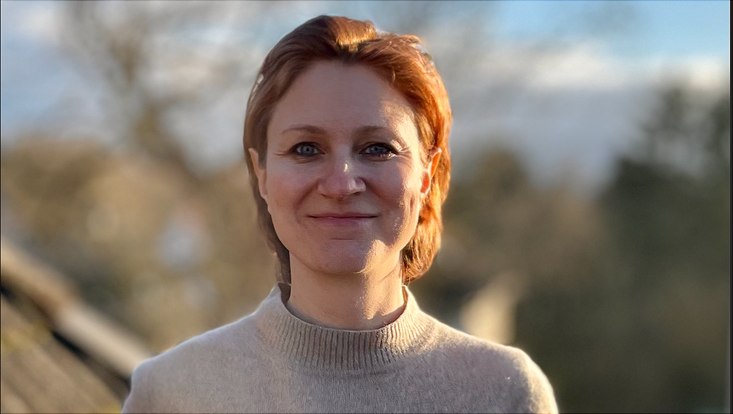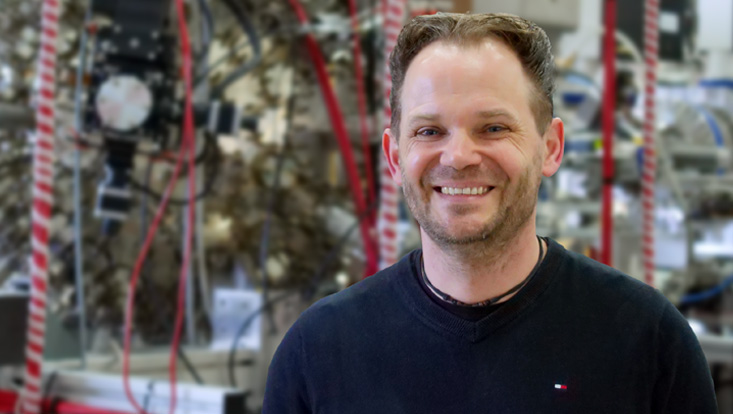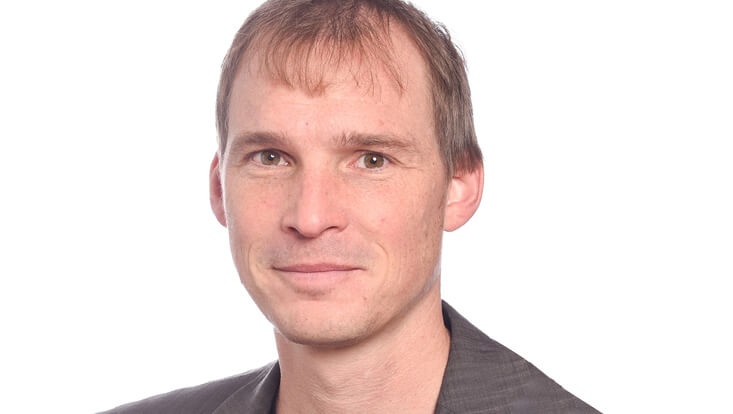Imaging of Matter
Prof. Tais Gorkhover: Imaging specialist
25 April 2021

Photo: privat
In the middle of last year, Prof. Tais Gorkhover took up her W3 professorship for "Experimental Physics with a focus on X-ray physics at free-electron lasers" at the Department of Physics and is now also conducting research as a leading scientist in the Cluster of Excellence.
Prof. Gorkhover studied physics in Augsburg, Seville (Spain) and Berlin. She earned her doctorate at the Technical University of Berlin, during which time she was already conducting research at the Linac Coherent Light Source (LCLS), an X-ray laser at SLAC National Laboratory in California. "The beginnings of the LCLS coincided with my first days as a graduate student," Tais Gorkhover says. "I was there for some of the first beam times and was involved in the early startup of the LCLS AMO experimental station. I was immediately captivated by the pioneering spirit of the lab; we witnessed the birth of a new field." In 2013, she received a Peter Paul Ewald Fellowship from the Volkswagen Foundation, which allowed her to continue her research at the LCLS as a visiting scientist after completing her PhD. As of 2017, she was working as a Panofsky Fellow at SLAC in Stanford University's PULSE Institute - the first woman ever to win the fellowship named after the lab's founding director. In 2018, she received the LCLS Young Investigator Award and the DOE Early Career Program Award from the U.S. Department of Energy for her groundbreaking research.
Tais Gorkhover specializes in developing new imaging techniques to study very fast processes of tiny particles. An important step in this direction was the development of so-called "in-flight holography." This special X-ray holography is able to generate high-resolution holograms of nanoviruses for the first time that were "in flight", i.e. not previously fixed to a surface.
Prof. Gorkhover, at the very beginning of your career, you studied physics in Augsburg. How did this choice of studies come about?
My original dream was to study piano, but I realized I wasn't good enough to be a successful concert pianist. I always found science exciting and read a lot of non-fiction books as a child. Since studying physics requires the least learning by heart, it wasn't a difficult choice for me.
Who has had a particular influence on you? Do you have any role models?
I was particularly influenced by people who encouraged and supported me throughout my studies and career. These were/are my family, my teachers and also many colleagues. Looking back, I think I was very lucky with the environment at several stages of my life. For example, my family immigrated to Germany with little money and we ended up in a refugee camp in a small village in Thuringia at the beginning. The people welcomed us very warmly, which was a very formative experience for me. German children from the village came to play with us, teenagers came to celebrate New Year, the village school ordered a German teacher from the next town especially for us. Today I know that these people didn't have many resources themselves and I greatly appreciate their commitment.
My biggest role model is definitely the character of Doc from the movie "Back to the Future". It's rare to find such a genius explorer and inventor who doesn't take themselves too seriously!
What is special about your research? What fascinates you?
My research focuses on the advancement of imaging techniques and visualization of processes on very fast time scales with X-rays. New imaging methods are particularly exciting because they open up new perspectives on the world around us. We are used to perceiving the world with the help of optical light and sound waves. X-rays can "see through" matter and provide a lot of information about the elemental composition of matter.
Personally, I enjoy conducting experiments at large-scale international research facilities in the USA, Asia and Europe, it's always fascinating to see that research can be approached with different styles but deliver equally successful outcomes.
What makes a good scientist for you?
I think good scientists and their approaches are quite diverse, but of course there are also similarities. In my eyes, scientists have to remain curious throughout their live times and also sometimes be willing to leave their own comfort zone. I also think it's very important that they take care of the next generation of scientists and pass on their expertise to the public.
What are your goals for the next two years?
In the next two years, I will build up a group and get involved in teaching. I also want to get to know Hamburg as a science hub and understand where I can contribute the most. I am very excited about Hamburg because of excellent experimental infrastructure for research with X-rays and many networking opportunities. Because of the Corona measures, this exploration phase is agonizingly slow, but that will certainly improve with time.


